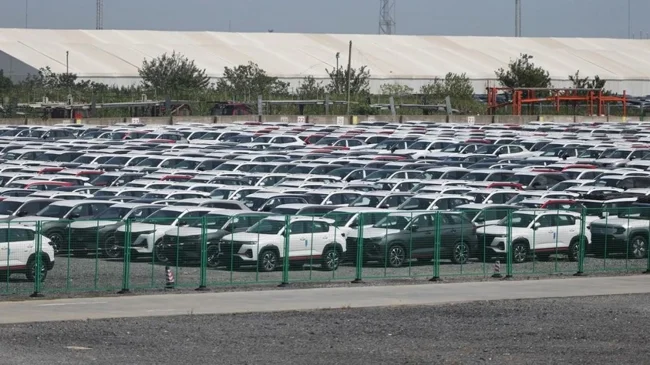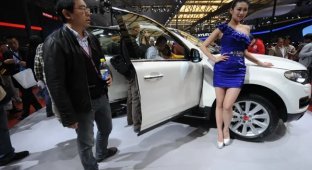Two-Thirds of Car Dealers in China Operate at a Loss (1 photo)
Years of subsidies and other government support measures were aimed at making China a global automotive power and a world leader in electric vehicles. They have also created a massive national problem. 
A Reuters analysis notes that China is now producing more cars than its domestic market, as well as the countries to which Chinese products are shipped, can handle, making profitability virtually impossible.
The resulting overproduction crisis is due to Communist Party policies that prioritize sales growth and market share for the sake of increasing employment and economic growth over profitability and sustainable competition. Local governments offer businesses cheap land and subsidies in exchange for production commitments and tax revenues, leading to increased excess capacity across the country.
The publication notes that, even while suffering colossal losses, automakers are forced to continue operating at the same pace to ensure cash flow, which is crucial for survival.
"It's like riding a bicycle: while you're pedaling, you may feel exhausted, but the bicycle remains upright," the head of one Chinese automaker explained to the agency.
According to a survey conducted by the China Automobile Dealers Association (CADA) in August, only 30% of dealers in the country are profitable. However, even they are unable to break out of the vicious cycle, as large dealerships purchase excess inventory to meet sales targets and secure coveted factory discounts and bonuses.
Both Chinese companies themselves and foreign companies doing business in China are inevitably exhausted by the dumping. Locally produced Audis are discounted by up to 50%, according to the publication, while thousands of brand-new used Chevy Malibus have been spotted for sale on the Zcar marketplace, priced at $14,000 versus the factory list price of $24,000. Often, brand-new models that have never been sold are sent to car dumps outside cities.
The looming collapse poses a threat to the entire Chinese economy, where the automotive industry and related services account for approximately one-tenth of GDP. According to the consulting firm Gasgoo Automotive Research Institute, Chinese automakers have the production capacity to produce twice as many vehicles as the 27.5 million that will roll off assembly lines in 2024. And the logical solution to the problem—closing factories and laying off excess staff—risks increased social unrest, something Beijing is eager to avoid at all costs.






























